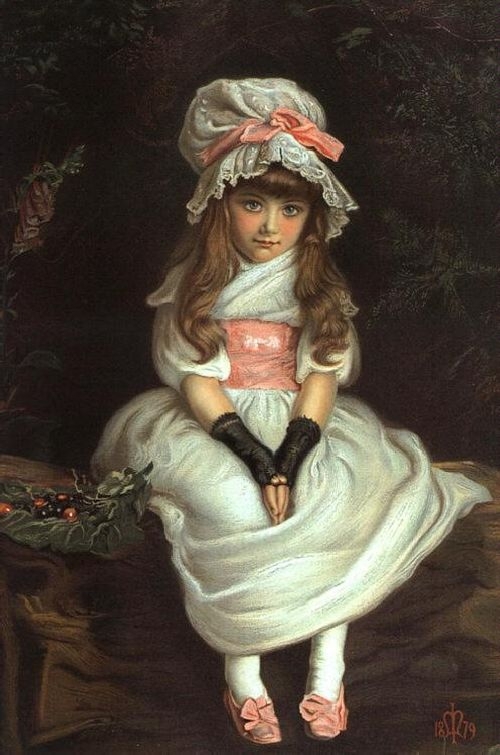With this pair of chapters, I think it is the details, the choice of words here and there, which is perhaps most striking. We are also granted another glimpse of the frank, even somewhat stormy, relationship Moses has with God.
In the good old days...
It is striking that the section opens "now when the people complained..." as if it is pretty miuch a given that they will. We recall from Exodus that the grumbling and mumbling began almost as soon as they left Egypt, now we hear it again, only this time with some different details... there is a 'rabble' craving rich food and people as a whole are weeping. It may be, so let's name it and move on, that this is another version of the material in Exodus, but it may not be. I'm choosing the latter, because it seems plausible and perhaps more realistic - looking back to "the good old days" is rarely a one off, it is something that can recur whenever people are tired or demoralised or dispirited. Back in Egypt... In the good old days...
It can be hard to keep moving forward when the going is tough, hard to put our trust in leaders who, perhaps, we feel have forgotten what we remember. It can be hard not to give way to rose-tinted remembering whilst conveniently forgetting all that used to annoy or oppress us.
It can be equally hard to stay positive, to keep looking forward when others are clearly struggling. Not wilfully opposing or undermining, not being a 'rabble' but perhaps being among those who find it all too much. If not weeping, maybe experiencing some sort of inner turmoil.
It's all too much
Last Sunday evening, on a spur of the moment decision, I went to a church service which was exploring something around the idea of where and how we might encounter God. One of the readings was the account of Elijah on Mount Horeb and his utter despair, so much so that he wanted to die. Such stories both trouble and reassure us - these were real people with real emotions. We see something similar here.
Moses looks around and it's all too much for him, he turns his anger to God and lets rip... Why have you done this to me? Am I the mother of these people (interesting to ponder with tomorrow being Mothers' Day)? What have I done to cause you to do this to me?
Just as with Elijah, the response from God is largely practical. Moses is to appoint 70 people to help him... Perhaps another clear overlap with, or repeat of, the Exodus narrative where his father-in-law tells him to do this, albeit this time with a divine mandate. Or maybe, and I think this is a legitimate reading, it is the same seventy men called out again, and this time, seemingly on a one-off basis, granted a measure of spirit normally granted to Moses.
It is, I think, at least in my own experience, easy to delegate or devolve responsibility nominally, to give people a role and then not really let them exercise it. I don't mean micro-management, that interferes with every detail (though clearly that would be possible) but almost the opposite, just carrying on taking on too much and then getting angry, upset, stressy or disillusioned along the way.
I find it strangely reassuring to think that Moses, and others in the scriptures, were as slow to learn thigns as sometimes I am or we are!!
You want meat...
Oh how I love the form of God's response to the demand for meat... you want it, you'll have it. Meat for breakfast, meat for dinner, meat for tea. Meat until it's coming out of your noses...
I often joke that when I was seeking settlement last time around, and whilst having expressed a willingness to go anywhere, had noted a preference for "Midlands and North" (assuming of England), and that God's repsonse was, you want north, my child, I'll give you north. Thankfully, what God gave me bore no resemblance to what happened for the Israelites... I haven't been glutted with northness!
The quails arrived and the people, at least some of them, gorged themselves on the meat... and some of them became so ill they died. This is described as God sending a plague on them, but I suspect a reasonable, rational explanation would be severe food poisoning caused by eating poorly prepared meat.
It's a strange story, and I'm not going to look for a neat moral, but there is something, I guess about the old adage to "be careful what you wish for"... sometimes what we think will make us happy or fulfilled actually just brings unexpected challenges and disappointments of its own. And of course sometimes, as in my desire for 'north', it can surprise us with the unexpected.
Now that's not fair...
This section ends with Aaron and Miriam coming to Moses to raise objection to his Cushite wife - for, we are told, he has a Cushite wife. God becomes angry with the two of them - there is no-one as humble as Moses, how dare they speak against him? And when the cloud lifts, Miriam's skin has become leprous whilst Aaron, former maker of golden calf and now ordained as priest, seems to get off with no ill effects. Sorry, but that's not fair! It's another example of am emerging society in which women bore the consequences and men could, seemingly, get away with whatever they did.
... But the people wait...
Miriam was shut out of the camp for seven days as a result of her skin condition. And the people waited for those days to pass before they set off again. They could have gone on without her. Could have given up on her. Could have left her where she was at the mercy of the elements or any other nomadic wanderers. But they waited.
Sometimes it is really challenging in any situation to wait for others. Not those those who might be deemed 'unclean' but those who maybe need more time to come to terms with ideas or changes, new thinking or experimental practices. Hard for those who are inspired or excited by the new; equally hard for those who need time to think, to pray, to adjust.
There have been times when I've needed years to work through ideas - sometimes I think I should just give in and go with them, because, thus far, I've never gone back to an old 'place' afterwards. And sometimes once I've 'got it' it's hard both to continue to make time and space for others who are still working it out, whilst not frustrating those who think things really ought to move further and faster.
There have also been times when I've wanted to move on faster and further than others were ready for, and have had to learn to wait, to adjust, to adapt.
Waiting, being patient, these are not my greatest gifts - at least in relation to myself.
I've never understood why Miriam suffered and Aaron didn't, and I guess there will always be situations that make no sense to me, but I am moved, encouraged and challenged by the small, important detail that the whole people waited for her to be ready before they moved on again.

